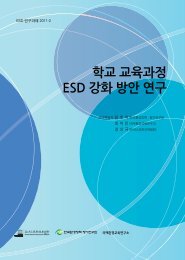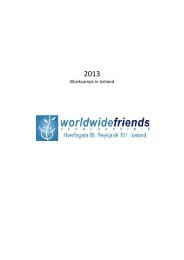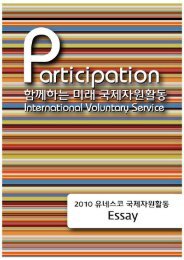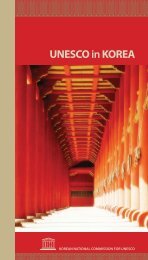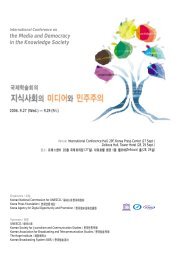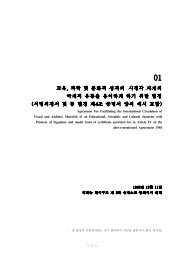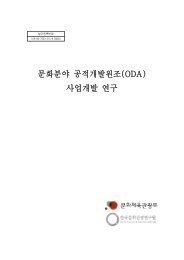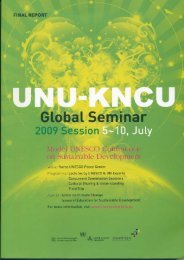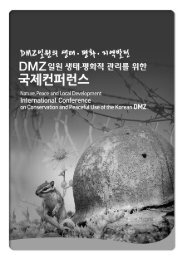íëìë³´ë2012문íì ë°ì ë¼ì´ëí ì´ë¸.pdf - ì ë¤ì¤ì½íêµììí
íëìë³´ë2012문íì ë°ì ë¼ì´ëí ì´ë¸.pdf - ì ë¤ì¤ì½íêµììí
íëìë³´ë2012문íì ë°ì ë¼ì´ëí ì´ë¸.pdf - ì ë¤ì¤ì½íêµììí
Create successful ePaper yourself
Turn your PDF publications into a flip-book with our unique Google optimized e-Paper software.
Final Roundtable<br />
Measures to Mainstream Culture in Implementing Sustainable Development Goals<br />
<br />
Choe, Jun-ho<br />
Professor of Theatrical Studies, Korean National University of Arts<br />
My question is for Ms. Patchett. Culture and finance can often come into conflict. When<br />
we see culture become a contributor to the economy, it changes, resulting in a dissolve of the<br />
culture. Cultural development and exchange can often be in different time frames. At times it<br />
is processed in mismatched circumstances. Culture and arts allow us to find the different<br />
value systems existing in this world…. I am a theatrical artist. The theater is all about the<br />
decisions made by others. Even if the main character’s act is influenced by his partner, and<br />
the act itself cannot be seen without the lights. As such, in a play, collaboration and harmony<br />
is necessary. In producing a theatrical play, we learn to be productive while maintaining<br />
peace and harmony in the process. Such analogy can be applied in the process of<br />
development, where the experience of art and education seeks to respect the culture and<br />
values of one another through a co-learning encounter, rather than dominating one culture by<br />
another. As such, culture in the framework of international development cooperation can be<br />
promoted by creating opportunities to meet and share among each other.<br />
Panel of 30 Experts<br />
Goo, Moon Mo<br />
Professor of Media Contents, Halla University<br />
Specializing in economics, I am seeking to promote policies that hinge upon cultural<br />
aspects. I support what has been presented by of Professor Yoo and Professor Kwak. The<br />
question of whether Korea’s experience of overcoming poverty will inspire Korean people to<br />
support the ‘cultural ODA’ was brought up. I believe that economic development is brought<br />
forth as a result of culture, rather than culture being a means to economic development. If we<br />
must consider the economic aspects of a community’s culture, it must have a direct<br />
connection to the lives of its residents. The idea of passing on traditional cooking methods in<br />
developing countries is indeed significant, as shown through Ms.Patchett’s presentation.<br />
Korea also has cultural activities of this sort, but if it is to be approached in terms of<br />
economics, it can cause social conflicts arising from competition between regional<br />
communities, rather than social cohesion. This is why cultural development schemes should



